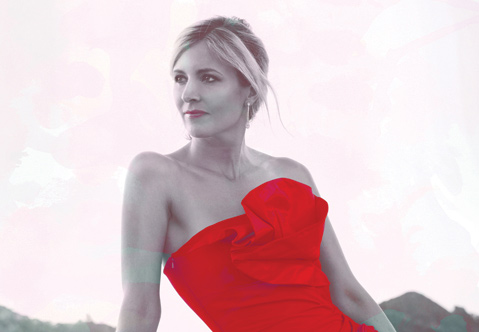Trumpeter Alison Balsom Excels on Early Instruments
Top Classical Player to Appear at UCSB on April 5

Alison Balsom earned her current reputation as the world’s top classical trumpet player with half a dozen outstanding recordings and several years of celebrated performances with major orchestras around the world. She’s absolutely at the top of her game right now and could be forgiven for standing on her amazing accomplishments. But that’s not what she’s done; Sound the Trumpet: Royal Music of Purcell & Handel, her most recent release on EMI Classics, finds Balsom playing exclusively on the natural, valveless instruments of the 17th and 18th century. It also features several remarkable transcriptions, in which Balsom takes on parts originally written for voice or even oboe. The result is some of the year’s most exciting recorded music of any genre, full of passion, beauty, and extremely subtle virtuosity. I recently spoke with Balsom, via phone from her home in London, in anticipation of her April 5 performance at UCSB.
The trumpet can be a demanding instrument. Do you find that to be true? Well, I started at 7, and, if you get an early start and you’ve got the right teeth and lips, it’s not so bad — but there’s no pretending it’s easy. It can be a battle to keep the physical aspect together. I do certain things when I practice just for the sake of building and maintaining my stamina. That physical power is necessary for making the sound be open the way I like it to be.
In recent years, you have been spending more time playing older, so-called “natural” trumpets. Why? I love these instruments. Once you’ve gone to the natural trumpet for this material [e.g., Vivaldi, Bach], you will never go back. The baroque trumpets are what these masterful composers had available to them, and, if playing one is a bit harder, it’s worth it because it actually makes you feel like you are playing back then. I particularly appreciate the way that these instruments allow me to strip away any pretensions from the account I give of older scores. The whole 19th- and 20th-century layer of approaches that has encrusted the sound is gone, which is great.
I really like “The Plaint” from The Fairy-Queen, the duet with soprano Lucy Crowe on your latest album, Sound the Trumpet. Could you describe what your intentions were with that? That plaint was always at the heart of this album. The goal was to perform it in a way that’s not outwardly virtuosic but that would convey its harrowing sadness. Trumpet players are not used to wearing their hearts on their sleeves. That’s why I was lucky in my collaborator, because I took a lot of cues for my playing from Lucy Crowe. Listening very closely to her over the course of several takes, I was able to pick up on how she was delving the depths, as it were, and that added a lot to what I was able to do with my part.
You’ve made something totally fresh out of some very old music. How do you account for that? I came to this music when I was still quite young, but I was not from a particularly musical family. So I really didn’t have any preconceptions about it, and that’s kind of the way I have tried to stay with it. All great music is about feeling, whether it is pop or early music or whatever else, and the important thing is to be ruthless in getting at that emotion.
4•1•1
Alison Balsom and the Scottish Ensemble perform at UCSB’s Campbell Hall on Friday, April 5, at 8 p.m. For tickets and information, call (805) 893-3535 or visit artsandlectures.sa.ucsb.edu.



